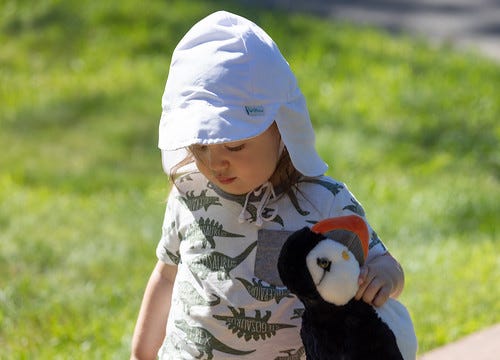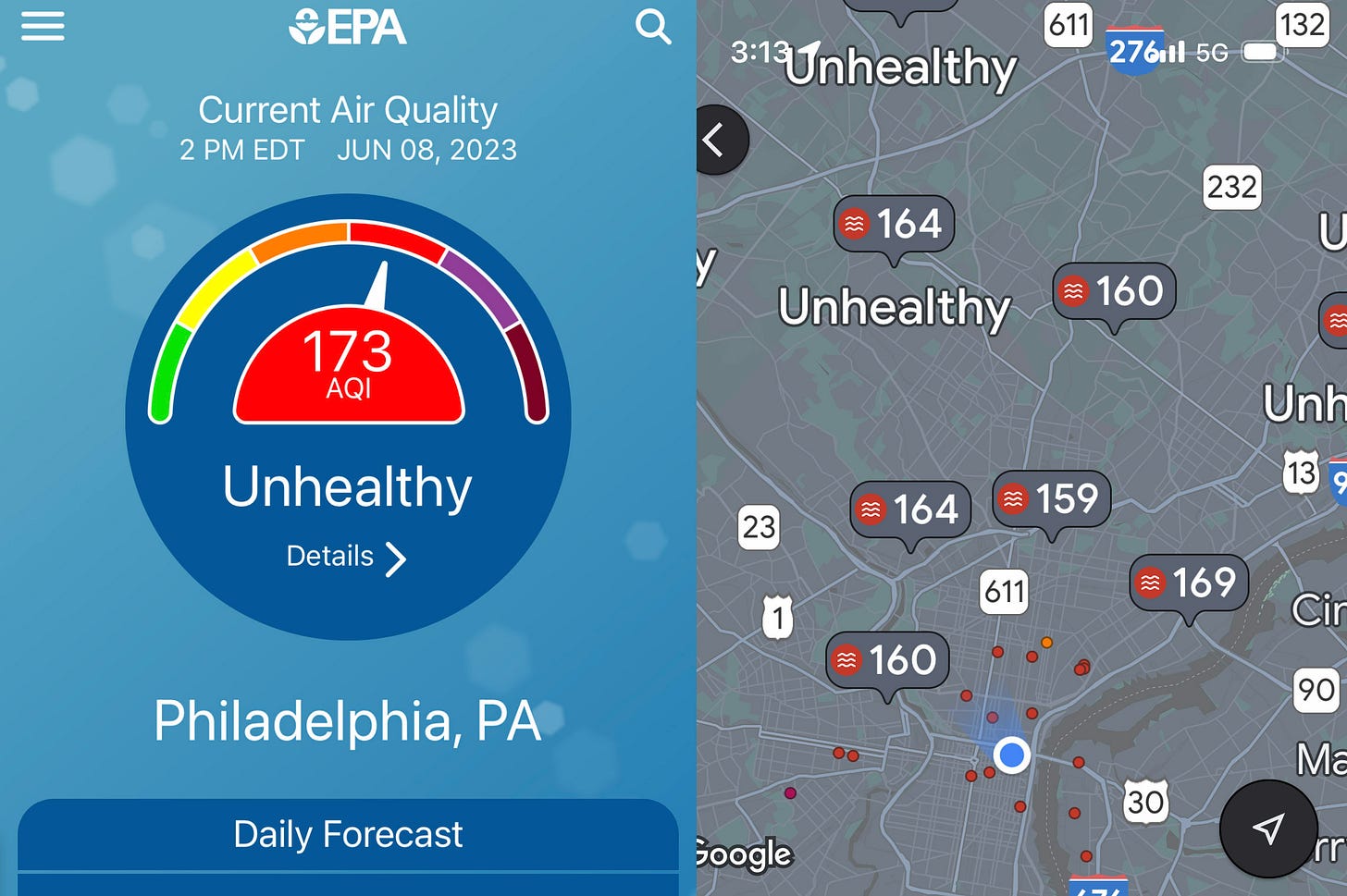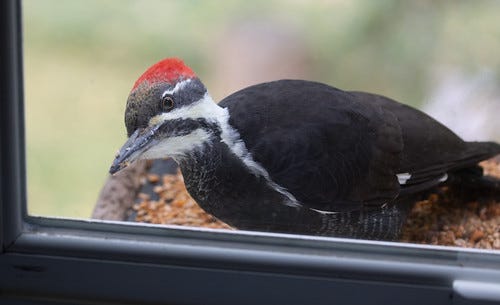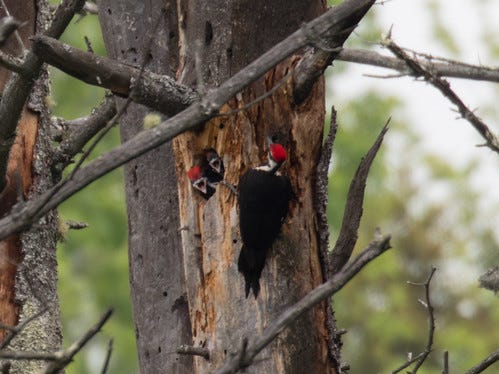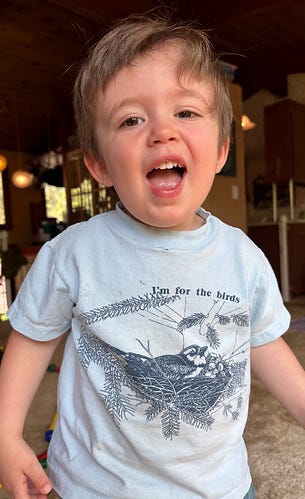(Listen to the radio version here.)
I awoke on Tuesday, June 13, to overcast skies and foggy haze. I smelled smoke when I let Pip out, took one look at the red sun and knew what was happening—smoke from massive Canadian wildfires had blown to Duluth. Our Air Quality Index was in the red zone. The week before, a Yankees baseball game was cancelled due to even worse air quality along the East Coast from those same fires.
I’d been planning on taking Walter on a birding walk Tuesday, but the unhealthy conditions kept us indoors. He doesn’t remember all the days we had to stay inside last year, or how we and his parents bought high-quality air filters to make our houses safe for him. This year, even as I told him about the smoke, I left out the part about how we adults have been ignoring scientific information about climate change for generations such that now we are facing increased numbers of all kinds of weather extremes and their repercussions—fires, droughts, floods, hurricanes, tornados, and rising ocean levels. Insurance companies are more proactive than people—they’ve started ending coverage in fire-prone California and hurricane- and flood-prone Florida.
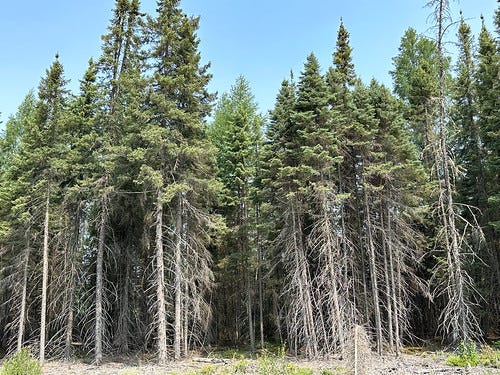
I couldn’t tell my nesting chickadees, robins, and wrens how important it is to stay indoors with filtered air, nor that this year’s dangerous drought is exacerbating the bad conditions for them because rainfall correlates with how many insects are available to feed baby birds.
My beloved BB the banded Pileated Woodpecker and his mate are nesting somewhere in the neighborhood—they each come, alone, to the feeder once or twice a day, giving me a ray of hope that the rest of the day they’re busy with family matters.
The air quality inside a woodpecker cavity is always poor; there’s no ventilation with just a single entry hole way above the nest floor. During the parents’ long incubating sessions, carbon dioxide builds up dangerously, but each time the parents swap duties, their flying in and out brings in a tide of fresh air. Woodpeckers hatch more quickly, in a more primitive state, than similarly sized birds, without any downy feathers at all, making this low-oxygen period as brief as possible.
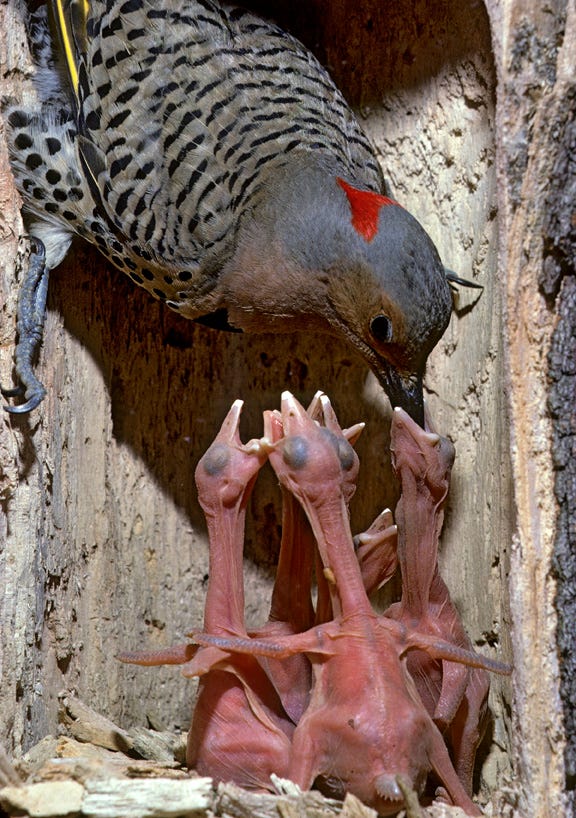
After they hatch, their parents fly in and out much more often for feedings. And as soon as they can climb, the babies gravitate to the entrance, their source of fresh air as well as quicker meals.
I don’t think anyone has ever done a study comparing nestling survival as air quality drops, but maybe in a few decades we’ll know if nest failures are correlated with smoky periods like this.
The reason miners brought canaries down with them was because birds have an extremely rapid metabolism and react much more quickly to toxins than we humans do, so a canary dying gave enough warning for miners to get out. The Biblical God also takes note of the fall of a sparrow. But we Americans don’t think much about falling birds—last week, people were more worried about when the Yankees’ game would be rescheduled. Will we ever know how many nests and baby birds burned up this year or last? Or how many birds have dropped dead from this abysmal air quality?
The huge increase in wildfires we’ve been seeing in recent years is both the result of climate change and a contributing cause. Trees and underlying peat aflame in northern forests release massive amounts of carbon that had been sequestered for hundreds and even thousands of years. And smoke-darkened skies reduce the output of solar panels such that power companies burn even more fossil fuels to power our air filters.
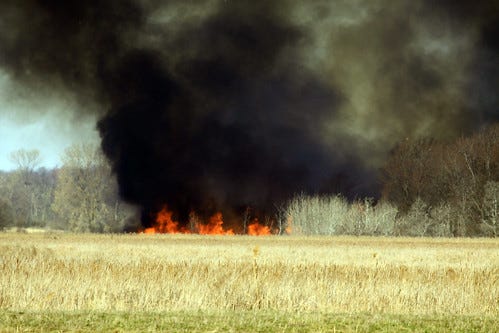
When Al Gore’s An Inconvenient Truth came out in 2006, a shocking number of people pooh-poohed the facts and ridiculed Gore, their talking points coming directly from corporations and billionaire lobbyists waging secret disinformation campaigns to discredit the very idea of climate change even as they prepared to capitalize on warming arctic seas to extract and transport even more fossil fuels.
Climate change is a clear and present danger, yet the media stays ever focused on an election season that won’t even begin until next year. Somehow the same media that, lacking substantive criticisms, ridiculed Al Gore’s “earth tones” soften news of another candidate’s criminal indictments by blurring the distinctions between possessing classified documents versus hiding and lying about stolen nuclear and military secrets even as they trivialize the serious criminal charges by laughing about cheap shower curtains and bathroom chandeliers. All this distracts Americans from a genuine existential crisis even as this year’s fire and hurricane seasons have only just begun.
I will never forget how, around the time An Inconvenient Truth was released, one of Russ’s relatives asked him, as a respected environmental scientist, how serious the issue of climate change really is. Russ explained the direness and how, though we can’t attribute any single disaster to it, the number and intensity of disasters will snowball as ocean temperatures and sea levels rise. His relative interrupted, “Yes, but how bad will it be in MY lifetime?”
The lives of nestling birds and tiny children are in our hands even as we’re using those hands to grab for all the gusto we can get right NOW, future be damned. The moment people take office, we must press them to work on solving our biggest problems, and keep that pressure on for the entire length of their terms. What good are elections when the moment anyone takes office, the media jumps to covering the next election cycle?
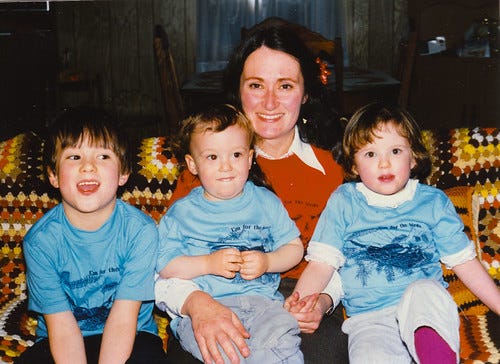
I dread the day when I must look into Walter’s happy, trusting eyes and explain how we short-sighted, selfish adults knew about climate change for so very long but didn’t do a damned thing about it.





